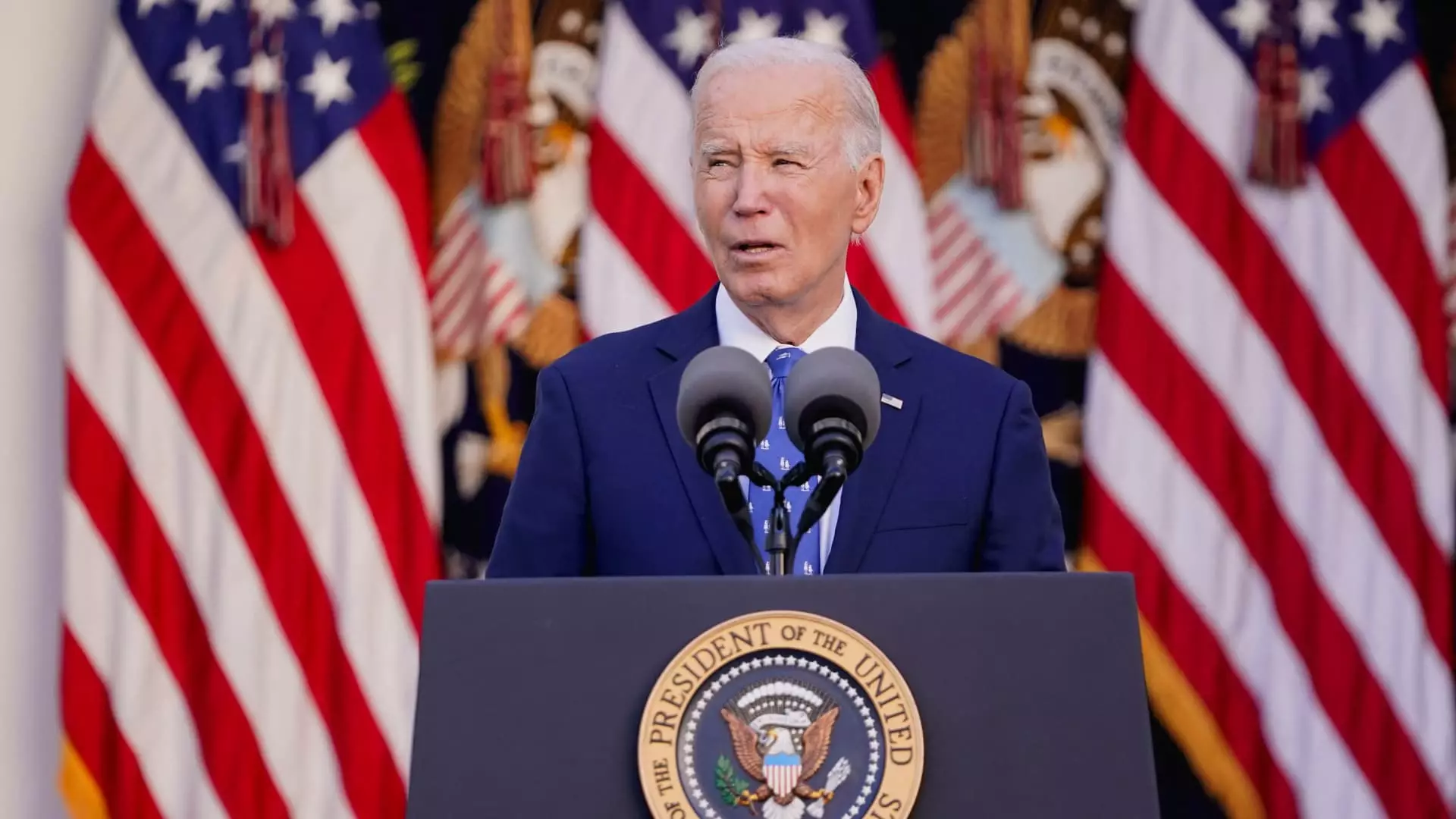As the dust settles on a pivotal moment in Syria’s tumultuous history, President Joe Biden’s recent remarks emphasize both hope and uncertainty regarding the future of the war-torn nation. After years of dictatorship under Bashar al-Assad, the toppling of his regime has sparked discussions about the potential evolution of Syria’s political landscape. The global community watches closely, aware that the transition from autocracy to democracy, while necessary, is rife with both opportunity and risk.
The Context of Change in Syria
Syria has endured over a decade of civil strife, partially driven by the oppressive rule of Assad, who ascended to power in 2000 after his father’s death. The internal uprising began in 2011 with fervent cries for democratic reforms but quickly devolved into a multi-faceted conflict involving foreign powers and extremist groups. The recent announcement of Assad’s resignation, presumably in the face of internally driven rebel forces, marks a significant disruption in this narrative—a disruption that holds the potential for transformative change.
President Biden’s enthusiasm about this seismic shift is apparent. He frames it as “a moment of historic opportunity,” not just for the Syrian populace, but for the entire region burdened by the consequences of conflict. The anticipated transition period, however, is colored by the stark realities of uncertainty. How will the nation organize itself politically? What safeguards can be established to prevent the collapse of order into further chaos?
As the United States positions itself in support of Syria’s transition, Biden has committed to working alongside regional partners such as Jordan, Iraq, Lebanon, and Israel. This collaborative approach mirrors broader U.S. strategic objectives in the Middle East, emphasizing stability and counter-terrorism. One of Biden’s primary concerns is the threat posed by ISIS, which may seek to exploit the power vacuum left by Assad’s leadership. In this regard, the U.S. has pledged to maintain military operations against remnants of the group, reaffirming its commitment to combating terrorism in the region.
The ongoing mission to protect detention facilities that house ISIS fighters underlines the complexities of this transition—while the need for human security is paramount, balancing this with humanitarian considerations is equally vital. Biden’s administration is aware that the situation is nuanced; a heavy-handed approach to security could antagonize local sentiments and derail the very progress that they hope to facilitate.
Biden’s critical assessment of the rebel factions that now occupy a pivotal role in Syria’s future underscores the multifaceted challenges ahead. While these groups may have played instrumental roles in dismantling Assad’s regime, many have troubling records concerning human rights and terrorism. Biden’s caution is warranted; as these groups ascend, their governance will likely reveal their true intentions. It raises the question: will they honor the principles of democracy, or revert to authoritarian tactics?
Moreover, the landscape of Syrian politics will inevitably be influenced by external actors, including Syria’s erstwhile allies Russia and Iran. According to Biden, these allies are currently in a weakened state, yet their possible interventions in the new political regime warrant careful scrutiny. It’s crucial for the United States to observe how these powers will respond to a shifting paradigm, as their interests may conflict with those of the Syrian people.
Humanitarian Challenges Ahead
Syria’s recovery is not solely a matter of political rebuilding; it also involves addressing severe humanitarian crises that have persisted throughout the civil war. Biden’s commitment to humanitarian aid signals a recognition of the extensive suffering endured by civilians and the necessity of international support to rebuild a war-torn nation. This aid must be facilitated with transparency and accountability to ensure it reaches those most in need.
As the transition unfolds, President Biden has also cited the case of Austin Tice, an American journalist missing since 2012. The president’s promise to prioritize his return exemplifies a broader commitment to addressing injustices that have proliferated over the years. Tice’s case is emblematic of the larger issue of human rights abuses that require international attention and intervention.
The recent upheaval in Syria offers a glimmer of hope for a country longing for peace and democracy. However, the road ahead will require astute navigation of geopolitical complexities, internal divisions, and humanitarian crises. As the United States engages with various stakeholders in Syria, the emphasis must be on dialogue, cooperation, and transparency. History teaches us that the transition to stability is rarely smooth, but with calculated actions and unwavering resolve, a brighter future for the Syrian people may yet be attainable.


Leave a Reply